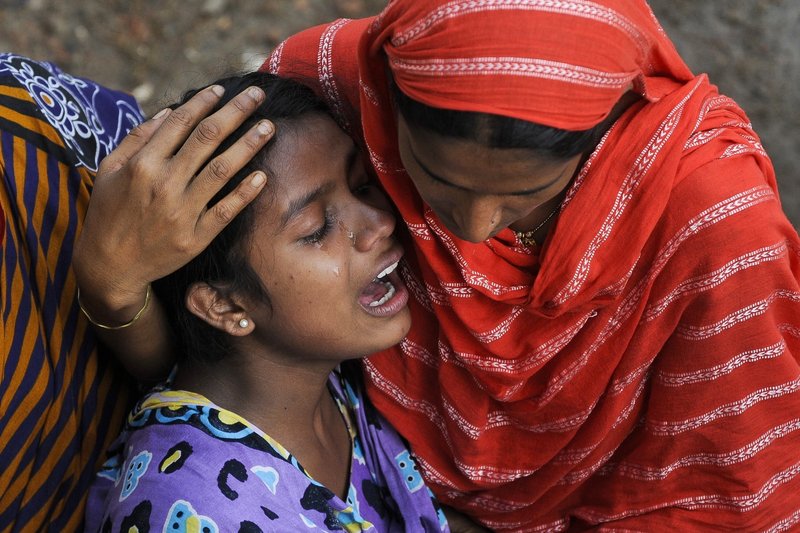Inhumane and unsafe working conditions and miserable wages are good reasons for American companies to stop doing business in Bangladesh, where a catastrophic factory collapse took more than 1,100 lives last month.
But the retailers who sell clothing made for low prices in the impoverished country can do more good by staying in Bangladesh and making sure conditions for workers improve.
That’s why we applaud the companies that have signed an accord that commits them to hiring safety inspectors and paying for any safety improvements needed. They include the European retailers H&M, based in Sweden, and Spain’s Inditex, owner of the Zara chain.
But we are concerned that the largest American companies are not participating.
Walmart, the world’s biggest retailer and the biggest buyer of goods made in Bangladesh, has not signed the accord, saying it will do its own inspections.
The Gap, another American retail giant, was negotiating some terms of the agreement, but a spokesman said the company expected to sign on.
It’s important that they do, and Walmart should sign on as well. No price is low enough to justify the kind of disaster that has become commonplace in Bangladesh.
The garment manufacturing industry is booming in Bangladesh, which has become the world’s No. 2 exporter of clothing, after China.
The industry employs 3.2 million people, who typically earn $40 a month for their labor.
And lately, the jobs have turned deadly. In addition to the April collapse, a factory fire killed 112 workers in November. Since 2005, at least 1,800 garment workers have been killed on the job in Bangladesh.
The large retailers have the power to effect real change in those factories, power that even the country’s government can’t match. And customers of companies like Walmart and The Gap have the power to influence those retailers in ways that could save lives.
Under the accord, companies would be required to publish the findings of the independent inspectors, so customers would know what conditions are behind the low prices. That’s information consumers should have when they are deciding what to buy.
If the American retailers don’t sign the factory safety accord, American consumers should let them know that they don’t want to be in the dark any longer. If customers demand proof that the clothing they buy was not made in dangerous conditions, the stores should listen. No bargain is worthwhile when lives are at stake.
Send questions/comments to the editors.



Success. Please wait for the page to reload. If the page does not reload within 5 seconds, please refresh the page.
Enter your email and password to access comments.
Hi, to comment on stories you must . This profile is in addition to your subscription and website login.
Already have a commenting profile? .
Invalid username/password.
Please check your email to confirm and complete your registration.
Only subscribers are eligible to post comments. Please subscribe or login first for digital access. Here’s why.
Use the form below to reset your password. When you've submitted your account email, we will send an email with a reset code.